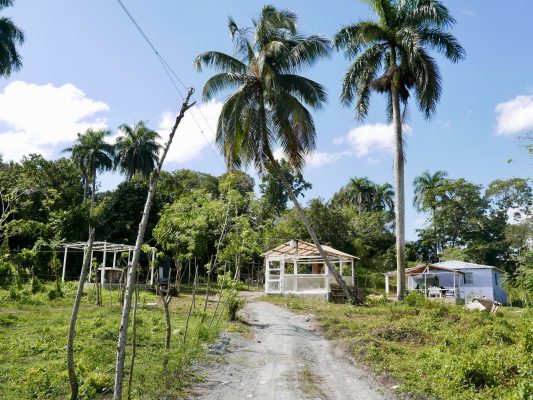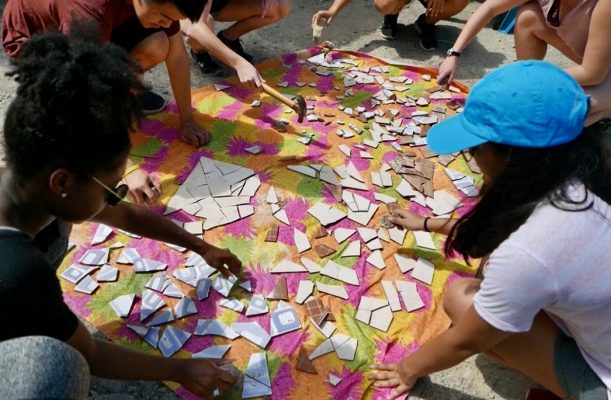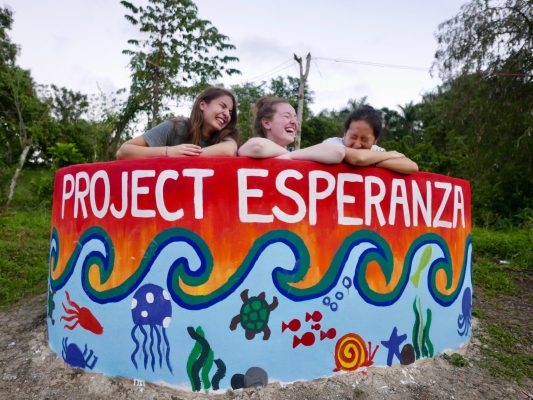By Alexandra Dittrich
During spring break this year, a group of 19 students and Gwen Corner, our amazing NU staff leader, traveled to the Dominican Republic on an SEI Alternative Spring Break trip. The students partnered with Project Esperanza – a non-profit organization that serves the stateless population of Haitian refugees in Puerto Plata through various educational, social aid, and community development projects.
Most of these stateless Haitian refugees that Project Esperanza works with live in communities called bateyes, or old sugarcane plantations with failing economies due to the migration of the sugarcane market. The living conditions in the bateyes are unimaginable for some – entire families living in small shacks made from discarded tin, cardboard, and other scrap materials. Most homes lack basic human necessities such as electricity, sanitation and clean water.

Project Esperanza was co-founded in 2005 by two Virginia Tech students to bring aid to the Haitian immigrants living in bateyes. Since its inception, Project Esperanza has committed to its mission of creating positive change and a sustainable future for Haitian refugees in the Dominican republic through a handful of initiatives. The organization currently operates two primary schools within the communities, a home for orphaned boys, an after-school club that teaches students English, a fair trade art shop, and more.
Our group stayed in Project Esperanza’s volunteer house for the week, located on a farm about a five minute walk from the closest bateye. The farm consisted of a flourishing vegetable garden, a shy dog named Lucy, and some very friendly donkeys that sometimes got too close for comfort, among other farm life. During four of the mornings of our stay, our group was responsible for teaching different groups of school children from Project Esperanza’s primary schools about biology, what it means to be living vs. nonliving, and other aspects of the farm. The children mainly spoke Haitian Creole and Spanish, so we were thankful to leverage the skills of a creole speaker and multiple Spanish speakers within our own group to facilitate communication.

A group of six Northeastern students also got the opportunity to facilitate an interesting discussion on microfinance with two local female entrepreneurs. The microfinance discussion was one of my favorite parts of the trip – the women were so grateful that we allowed their voices to be heard, and the discussion brought up a lot of interesting points to think about when expanding the microfinance program throughout the community. One point of frustration the women continued to emphasize was the size of the loan – they both agreed the size of the loan they had received was simply not enough to have any real impact. This led us to conclude that the community would benefit from a select amount of larger loans rather than a large quantity of smaller loans.
The rest of our time with Project Esperanza was divided up between a handful of activities – teaching English at an after-school club for Spanish and Creole-speaking students, setting up a used-clothing store for the community, painting and constructing a patio mosaic for the volunteer house. During down time, we played card games, created lesson plans for the following day, and reflected as a group on our own privilege as Northeastern students – most of us concluding that we have even more privilege than we’d originally realized.

Overall, I feel so grateful for the opportunity to have traveled with a wonderful group of people to the Dominican Republic during my last semester at Northeastern. The resilience of the communities is what remains at the forefront of my memory of the trip – while we encountered individuals living in extreme poverty, we also met goofy, laughing children, experienced entrepreneurs, and a community that stands together against a society that works against them. While our time in Puerto Plata was short, the positive memories and increased sense of gratitude for our own lives will hopefully impact us all for years to come.


